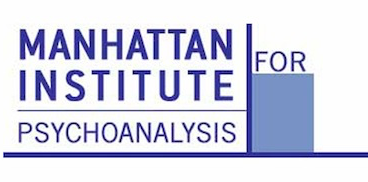To mark the second year of the Analysis Now blog, we ask what it means to be part of a psychoanalytic community. For this special blog series, “The Psychoanalytic Community,” members of the Manhattan Institute – founders, faculty, supervisors, candidates, and graduates – reflect on what the institute means to them personally, how the community has changed, ways that the Institute has influenced their practice, and what might be down the road, both for MIP and for the field of psychoanalysis.
Irwin Hirsch, one of MIP’s founders, kicks off the series.
I suppose that as one of the seven founders and first director of the Manhattan Institute, I am a logical choice to write this opening piece to a new blog series addressing some of what it may mean to be part of a psychoanalytic institute – ours in particular.
Since 1978, when I and my six colleagues and then friends began planning to start a new institute, MIP has been my primary psychoanalytic community. Though I have a number of other institutional affiliations that I value, I have met and feel personally close with more people in this community than anywhere else. I believe that being part of a community is one of the two key reasons to pursue psychoanalytic training. The other is, of course, becoming educated and increasingly skilled, and maintaining and expanding one’s education and therapeutic talent.
I do not believe that anyone can learn to do this work effectively without considerable, specialized training. If one believes that the potential for significant personal growth is more likely to occur via the route of being an analytic patient than in any other form of psychotherapy, a long and arduous training process is necessary to meet our responsibility to those who seek us out for this aim. However, as most of us who go through analytic training come to realize, our education does not stop at graduation. It is very difficult to work psychoanalytically without continuous and long-term immersion in some form of supervision, attendance at educational meetings, and connection to the ever-evolving psychoanalytic literature. Active involvement in a psychoanalytic institute is the most likely and convenient avenue for graduate analysts to continue to grow, to gain skill at this very complex and difficult profession.
If one pursues professional growth in the context of continuous involvement in a psychoanalytic institute, it is likely that this collegial atmosphere will evolve into a network both of friendships and sources of private referrals. I do not believe, as some colleagues do, that doing psychoanalysis in the privacy of one’s office is a lonely enterprise. Indeed, I am with patients all day long, and usually grow to feel close to them and to benefit from human contact with them. What I often feel is difficult is the professional boundary that prohibits personal involvement beyond the parameters of our 45 minutes together. It is not that I am lonely without this desire being fulfilled; it comes closer to a feeling of deprivation. Being part of an analytic institute obviates this for me. It allows for personal relationships with fewer boundaries, with those doing similar work and sharing many similar concerns and worries. Independent of family relationships, intimate partners, and friends outside of our profession, these collegial connections help me feel that I am part of a community and the increased personal security that accompanies this.
I believe that life is easier when we feel an integral part of a community, professional, cultural, or otherwise. Pursuing psychoanalytic education, indeed a life-long commitment, allows for such immersion and acceptance, as well as professional advancement (e.g., teaching and supervising) in that community and beyond. It is personally gratifying for me to see that over the years, the vast majority of teaching, supervising, and administration at our institute has been taken over by our graduates. I believe that this is as it should be. Those who feel most deeply about this community are likely to have the strongest commitment to the work they perform. I also feel proud that MIP has developed a tradition of inviting decision-making and committee participation from all segments of the community – students, graduates, and faculty. Those of us who started this institute have seen our graduates expand meaningfully and successfully the scope of available personal and educational immersion – a one-year program, a trauma program, a license qualifying program, and initiatives on gender and sexuality and on racial and ethnic diversity.
Manhattan Institute has grown into a warm and welcoming community, promoting both continued education and friendship. My own involvement here, highlighted by the many wonderful people I have met and worked with, means a great deal to me. I encourage others to consider the range of benefits of active immersion in such a community, and what that rich experience might mean to you.
Irwin Hirsch, PhD, a founder of the Manhattan Institute for Psychoanalysis, is teaching and supervising faculty at the Manhattan Institute for Psychoanalysis and other institutes. He is in private practice in Manhattan.








Leave a Reply
Your email is safe with us.